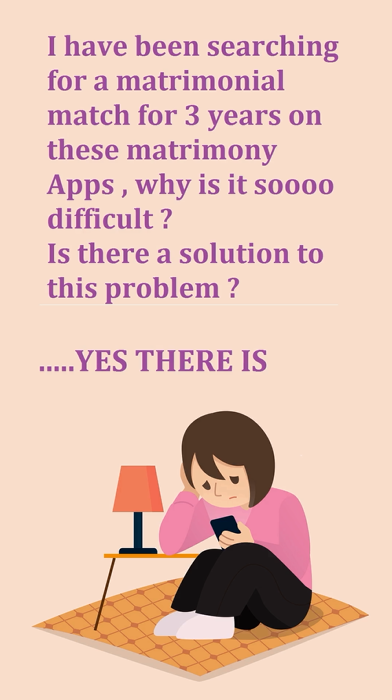
Will I ever find a good match for matrimony ? Why is arranged marriage so difficult in India ?
Challenges in matchmaking for arranged matrimony in India. Shaadi in India has indeed become challenging due to issues in finding a compatible match and further complicated by trust issues and lack of common connections to answer queries and bridge the gap. MarryWOW is here to solve the problem.
Arranged marriages remain a significant cultural practice in India, but they are not without challenges. Here are some of the most prominent issues faced by individuals and families involved in arranged marriages:
1. Lack of Personal Choice
-
Individuals may have limited say in choosing their life partner.
-
Pressure from family or community often outweighs personal preferences.
-
Compatibility based on emotional, intellectual, or lifestyle factors can be overlooked.
2. Family and Social Pressure
-
Strong expectations to marry within caste, religion, or socioeconomic status.
-
Rejection of a proposal can lead to family disputes or social stigma.
-
Fear of community judgment or dishonoring the family.
3. Gender Inequality
-
Women are often subjected to more scrutiny regarding appearance, behavior, and family background.
-
In some cases, the bride’s education or career is downplayed in favor of her domestic skills.
-
Patriarchal norms can lead to control over the woman’s autonomy post-marriage.
4. Dowry and Financial Expectations
-
Despite being illegal, dowry practices still exist in many parts of India.
-
Financial demands can place immense pressure on the bride's family.
-
Dowry-related disputes have been linked to domestic abuse and even dowry deaths.
5. Compatibility Issues
-
Marriages arranged without sufficient courtship or understanding may lead to incompatibility.
-
Emotional and sexual dissatisfaction is common in some cases due to lack of connection.
-
Adjustment issues, especially in joint families, can be overwhelming.
6. Lack of Pre-marital Interaction
-
Limited time or space to know each other before marriage.
-
Conversations are often formal or supervised, restricting open dialogue.
-
This can lead to unrealistic expectations and communication gaps.
7. Influence of Astrology and Superstition
-
Horoscope matching is prioritized over personality traits or life goals.
-
Decisions based on astrology can delay or cancel otherwise suitable matches.
8. Interference from Extended Family
-
In joint family systems, in-laws may interfere in the couple’s personal matters.
-
Young couples may lack privacy or independence in making life decisions.
9. Changing Social Values
-
Growing urbanization and education have led many to question traditional marriage practices.
-
There is increasing conflict between modern values (e.g., love, equality) and traditional expectations.
10. Legal and Ethical Concerns
-
Cases of child marriage still occur under the guise of tradition.
-
Marriages without the full consent of both parties raise ethical and legal red flags.





